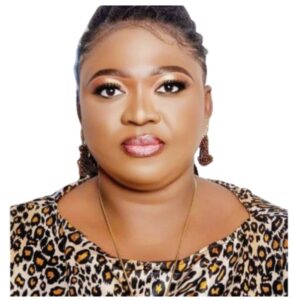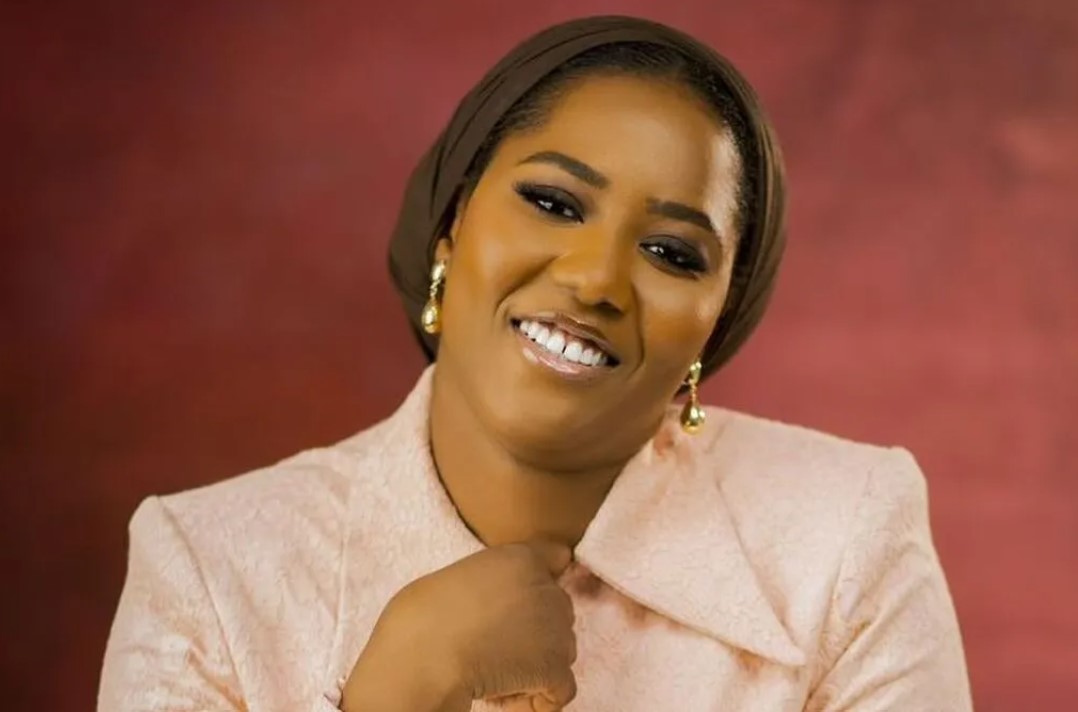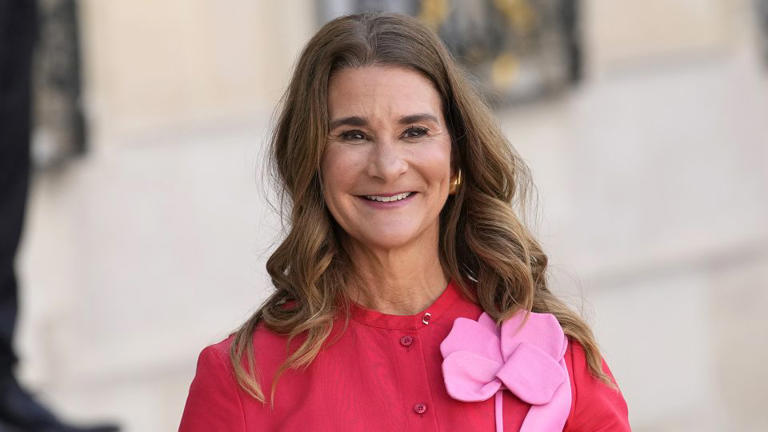Tyessi: Gender Equality Is Achievable In Nigeria If…
- Gender
- No Comment
- 237

Regardless of where you live, gender equality is a fundamental human right. Advancing gender equality is critical to all areas of a healthy society, from reducing poverty to promoting health, education, protection and the well-being of girls and boys. Gender equality is not only a fundamental human right, but a necessary foundation for a peaceful, prosperous and sustainable world. It is on this premise that Kuni Tyessi, an author and gender advocate, has noted that gender equality is achievable in Nigeria if the government creates and sustains an atmosphere of peace. “Gender equality is achievable. Government should create and sustain an atmosphere of peace and stability, not one that threatens the well-being of the girl child while at school. It should enforce compulsory education at basic level and discourage hawking during school hours and early marriage.
They should create sensitisation outreaches through traditional, community and religious leaders about the importance of education which will enable the girls to stand at par with their male counterparts. Above all, it should increase the budgetary allocation for education to a minimum of 15 per cent and with special preference for the girl child, particularly those who are interested in science based courses.”
Describing her journey so far as a gender advocate she said: “It has been difficult in a patriarchal setting, particularly when you keep having situations whereby culture and religion has consistently placed men at the helm of affairs that determine what women should be and how far they should go; how they should be treated and decisions they should make or take even when it concerns their health, status, feelings, sexuality and even finances. With such in place, the catalyst for self-acceptance, self-improvement and development becomes difficult to inculcate especially in women who have embraced the existentialist way of life. That is on the one hand. “On the other hand, there are women who have become patriarchal queens and like men, they are known to unleash hardship on their fellow women and consider them with disdainful habits due to their acquired status in education, position/leadership and wealth. The sisterhood mantra soon becomes lost and no remarkable progress is made as expected in helping those at the bottom of the ladder. However, as advocacy entails, there’s no going back in the place of continued enlightenment.”
Awareness
Tyessi identified lack of awareness and exposure to common knowledge as the major challenge hindering gender equality in Nigeria. “When women understand that they are equal to men as humans, but made differently to fulfil purpose by a God who believes in organisation, then the call for equality will not arise, but there will be a call for equity which is centred on social justice. Many women are groping in the dark and do not even realise who they are, what they’re capable of doing, their purpose in life, as well as what they want and hope to become and achieve. Many are still undermining the place of education and what they stand to benefit. “By the time they realise its importance, many are already encumbered with the task of family and raising children in the face of a drowning economy. Finance is also a factor especially in the political terrain. Most times, women lack the financial muscle to contest and win elections and many times are discouraged by the name calling and tagging that is synonymous with the case of gender.
“Several of those who get elected lose focus once they get into office, and many times do not see the need to reach out to fellow women and help them to the podium. If that isn’t the case, then their deficiency in number which could have been formidable in pushing for gender bills is watered down. Those not elected or appointed find it difficult to support the few in positions of power. Unknown to them, they diminish themselves with such an unwholesome attitude,” she explained.
Speaking on what the Federal Government should do to ensure an end to harmful practices in the country; she harped on the need to implement enacted laws. “Somone rightly said that our problem as a nation is not the enactment of laws, but the implementation. We are yet to understand that once laws are not implemented, then they are as good as dead. There should be arrests and prosecutions as well as convictions. These will serve as deterrents and in so doing, there shouldn’t be sacred cows. The use of registers having the names and pictures of abusers of women and children has not been properly enforced and utilised by relevant agencies. In many of the registers, what you see are only names and not pictures, and this has watered down the reason for the initiative. “The judiciary needs to be strengthened. Domiciled in the Federal Ministry of Women Affairs are a scandalous number of cases that involve sexual and gender based violence (SGBV) against women. Several of the cases are yet to be filed. Many that have been filed have been prolonged unnecessarily with justice becoming a far cry from reality. Some of the cases have been thrown out due to certain technicalities and some punishments were a mere slap on the wrist of the abuser. Some have even been withdrawn by the victims or their families due to fear of harassment.”
Growing up
Talking about her growing up, she noted that it was fun as her parents are educated parents, particularly her father who believes in girl child education. She noted that her father gave her all the support she needed. Apart from school activities: “I had a home lesson teacher and would also attend summer lessons not minding the distance from home to school which was not less than 15 kilometres. My father made it a habit to always take my brother and me to the National Library in my state twice in a week so that we could read and borrow story books. We also had many story books that he bought for us, including bedtime stories that taught morals and ignited the imagination. “The Nigerian Television Authority (NTA) was the only local channel at that time and they were dutiful in the creation of children-friendly programmes such as ‘Sesame Street’, ‘Jagua’, ‘Sa- manja’, ‘Tales by Moonlight’ and ‘Village Headmaster’, amongst others. “Every day after work, my dad always returned home with three or four newspapers and would sometimes drop them on my bed.
I’d read them aloud in front of my mother’s mirror, and if she was not at home, I’d tie some of her geles while at the act. For me, being in the media was all about intelligence, creativity, glam- our, beauty and the ability to speak the imperial language. Every night, I listened to the NTA Network News and was vast in current affairs. I was also writing stories on papers I had torn out of my note books. It was fun doing so and I’d also draw and paint in the process as illustration for my stories.” She advised youngsters who wished to attain great height to be dedicated, aware of times and season and knowing when to seize opportunities, “be consistent, never falling for procrastination, build a formidable network and above all, don’t forget the God-factor.”
Tyessi gave a sneak peek into what her book, ‘Being Twins’ is all about: “It is a collection of 50 poems that have been symbolically divided into three parts to represent morning, afternoon and the evening time of a person’s life. The first part is titled ’relationships’ and this traverses between man and woman, human and nature, humans and culture, humans with self, humans and animals, and between humans and the supernatural. “The second part has the title of the book which deals solely with the life of a typical African woman from birth to death and it tells about the different stages that women go through. This might have been thrust at them by nature, religion, culture, society or self. The last part is titled ‘mortality’ and it searches deeply into the intricate workings of the human mind. It poses salient questions which are mostly rhetoric. “The message as encapsulated in the title of the book is a depiction of the fact that every mortal is a twin and life is the other sibling that tags along from conception to birth and then to death. Inspiration to write the poems came from the choice of my gender by God, and the inherent discrimination that I have witnessed all around me, particularly the ones that have been blindly supported socioeconomically, politically and culturally by society and some- times, family.”
By Deborah Ocheni





